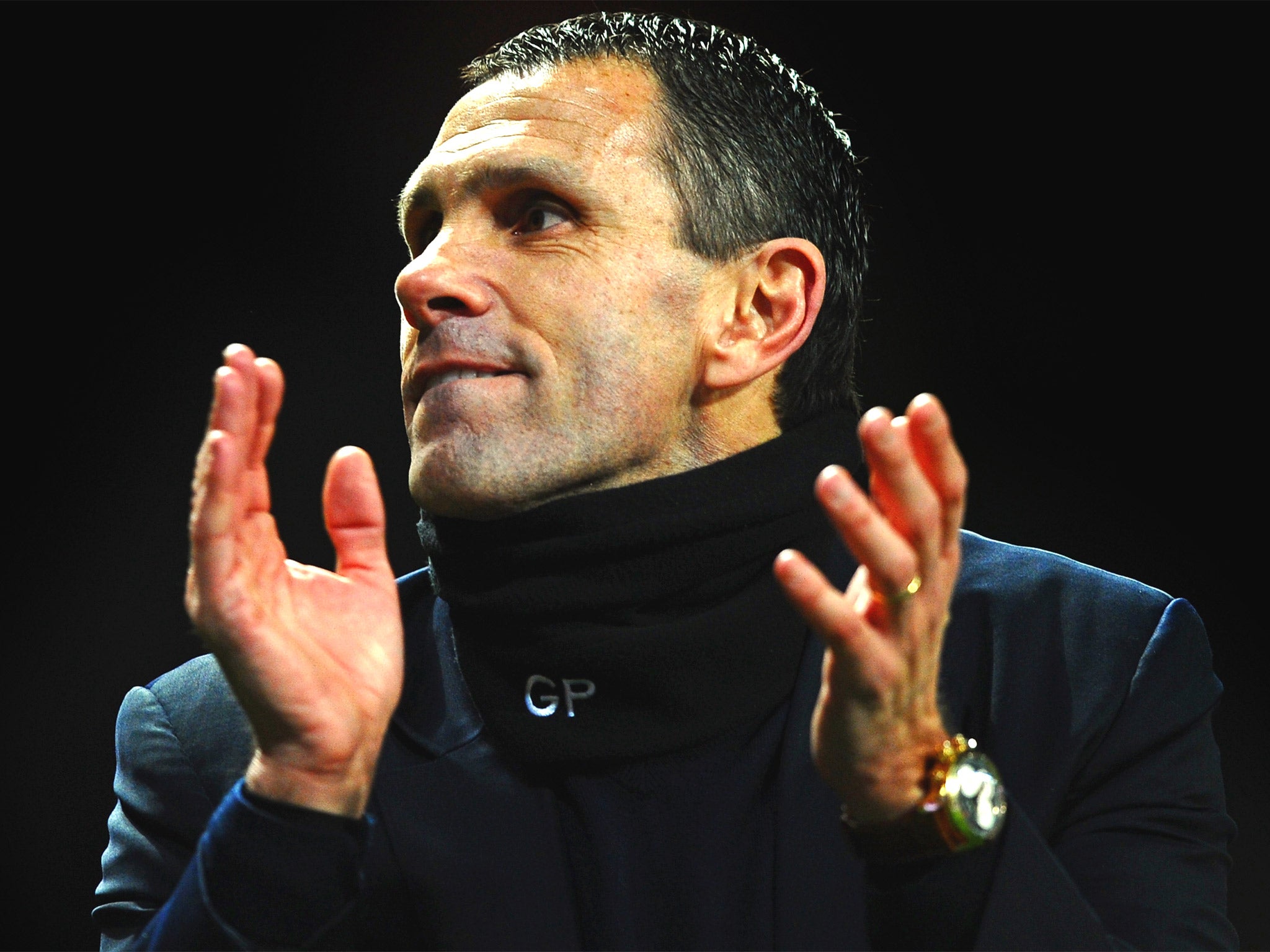Analysis: Gus Poyet methods in Capital One Cup success give Sunderland stomach for Premier League survival battle
Under former manager Paolo Di Canio, Lee Cattermole was lost – a totem of the the Italian’s dislocated relationship with his players

The primary objective seemed to be evident from the minute Fabio Borini thumped into Adnan Januzaj and upended him. Stop the prime property. You could certainly see the logic to that.
The jewel in Manchester United’s crown looked capable of wreaking destruction, for all the Wearside attempts to crush him. When Marcos Alonso had his own go at rough-housing him, Januzaj just nutmegged the Spaniard, and by the time the game had settled into a rhythm, Borini and Lee Cattermole could do no more than just watch him play around them.
Yet there was more to Sunderland than all that here. They fell behind in a dismal manner, Borini neglecting to remember that rather elementary aspect about stepping up with the defenders to play the opposition offside. Yet they were neither daunted not defeatist. They passed the ball like a side who have rediscovered a desire to receive and give it. Gus Poyet’s was the more balanced team and comfortably the more creative.
Alonso, Borini, and Cattermole navigated angular passes in front of their defence, seemed to feel no panic and in the stature of the latter of those three revealed the extraordinary difference that a manager who motivates can bring.
In pictures: Manchester United 2 Sunderland 1 (agg 3-3, Sunderland win 2-1 on penalties)
Show all 9Under Paolo di Canio, Cattermole was lost on Wearside – a totem of the Italian’s dislocated relationship with his players; despised by the management and reduced to playing with the kids by the end. Under Poyet he is the player that Steve Bruce knew he could be when he can exercise some self-control.
He patrolled the deep areas, gesturing, demanding, snapping a tackle at Javier Hernandez, exhorting Jack Colback to press forward and press Rafael da Silva in his own defensive territory.
The surprise was that Adam Johnson – who has contributed to or finished nine of Gus Poyet’s team’s last 11matches – was not equipped with the ball more often, because Johnson against Alex Buttner looked like an uneven contest.
The Englishman displayed the quality of a player in a supreme flush of form on 34 minutes, when he clipped a 30-yard pass which Borini took on the half volley and fired powerfully just wide after easing past Rafael. It was not a match-winning Johnson, though. Januzaj put paid to that with a vast amount of chasing and harrying of his own.
Poyet certainly used the interval. His players were reinvigorated when they returned from it, driving at United again and again early in the second period in a way that brought two fine defensive headers from Chris Smalling and provided fleeting senses that they would cause trouble here.
There was noise from the United support but it was intermittent, nervous noise. There was width about Sunderland, too, and a real sense of invention.
Their most exquisitely crafted move of the night bore the imprint of a squad who are together on the training pitch – a beautiful dummy by Steven Fletcher allowing the ball to flow through for Alonso who struck his half volley sweetly though sent it well wide of David de Gea’s left hand post. United managed nothing so fine as their first half creative impetus dried up.
There were intermittent signs, too, of the United defensive fraility that has defined the slough they have dropped into. Smalling, who does not always look like a defender with true conviction, was lucky to escape with a lumbering challenge on Fletcher, wrapping his arms around him and getting away with it when he was the last line of defence.
Sunderland played their own defensive part – hauling themselves into blocks when Januzaj, the only clear and present danger in United’s ranks, made to shoot. There was unmistakable appreciation around this place for the role Wes Brown played in the stadium where he fulfilled his dreams, hauling himself into another block when the game entered extra time.
But it said everything about Jonny Evans’ contribution was the night’s outstanding one. Sunderland needed excellence to seize on the half chances which came their way and Evans so often prevented that. After what the past five months have brought them, this was a form of victory from which they will be sustained for the league battle ahead.
Subscribe to Independent Premium to bookmark this article
Want to bookmark your favourite articles and stories to read or reference later? Start your Independent Premium subscription today.

Join our commenting forum
Join thought-provoking conversations, follow other Independent readers and see their replies